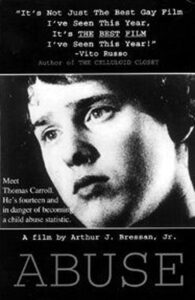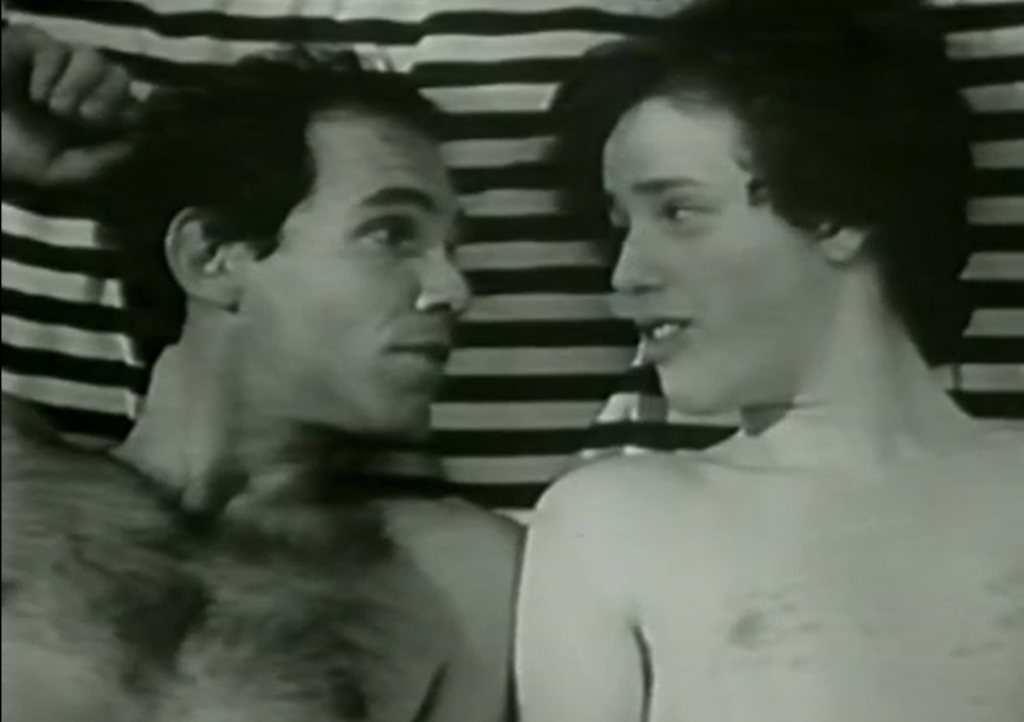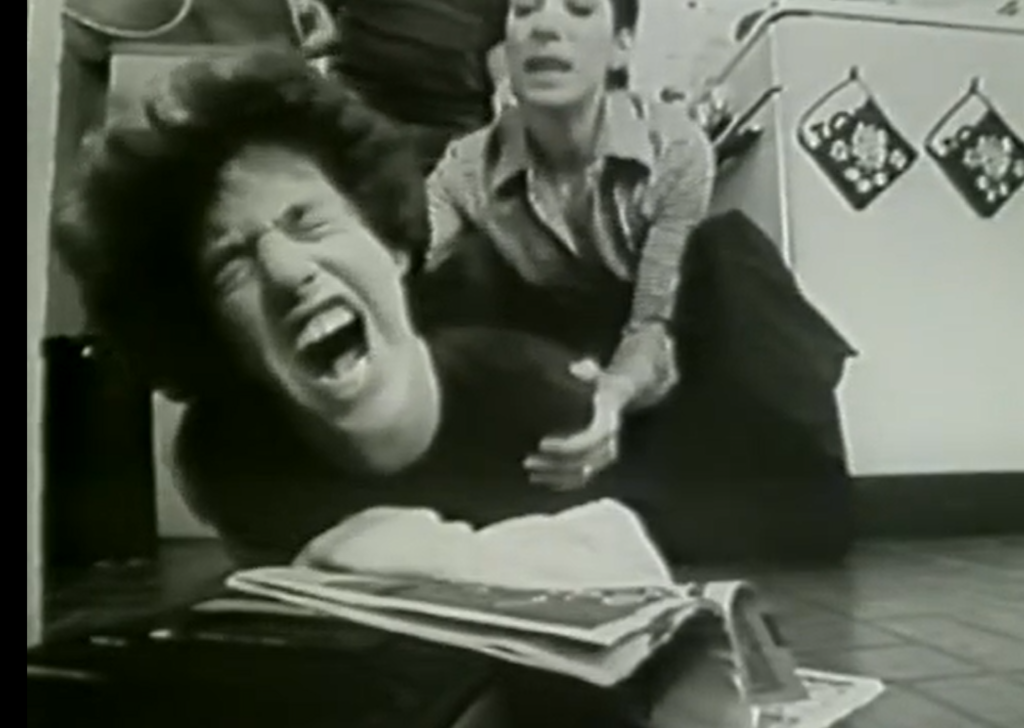“You just can’t reach in and click a kid on: ‘I love you. You’re transformed.'”
|

Synopsis:
A gay graduate student (Richard Ryder) making a documentary film about child abuse befriends an abused teenager (Raphael Sbarge), and the two become lovers.
|
|
Genres, Themes, Actors, and Directors:
- Child Abuse
- Homosexuality
- May-December Romance
- Movie Directors
Response to Peary’s Review:
As Peary notes, this “extremely controversial” independent film — definitely not for all tastes — is both “thought-provoking and important”. There are many unsettling moments, including the “almost too realistic scenes in which the boy’s father and mother switch in an instant from being loving parents to monsters”. It’s clear that director Arthur Bressan, Jr. believes “a young adult becoming lover/protector of a teenager is a welcome alternative to his parents battering him”, but this view is contestable. See Gregg Araki’s Mysterious Skin (2005) for another interesting look at the not-so-clear-cut line between abuse and a consensual May-December affair.
Redeeming Qualities:
- A provocative storyline without a clear sense of right-and-wrong

- Powerful abuse imagery, which allows viewers to truly empathize with Sbarge’s terror

Must See?
No, though it’s definitely worth checking out.
Links:
|
One thought on “Abuse (1983)”
First viewing. Not a must, really.
Those who know little about the subject matter will not really feel they have learned anything – and those seriously studying child abuse will find better sources of info elsewhere. That’s not to say that the film is worthless – it manages to draw attention to this evil phenomenon: midway there is a montage sequence, first of horrific stills of abuse and then testimonies that are startling. But one comes away from the film sensing that the issue hasn’t been properly addressed.
At times, the film feels hackneyed and self-congratulatory – both detract, and obviously that hurts the film. It’s also, overall, difficult taking the main character of the filmmaker seriously.
What we’re left with is a film with a powerful theme which has moments that are effective but which only explores superficially.
Note: This is one of a number of very obscure titles peppered throughout Peary’s book which are all but impossible (even for hardcore ffs) to find. I just saw it on YouTube and had to make out most of the dialogue – which was loud enough, thankfully – as it was delivered under a Russian voice-over (?!). Perhaps, at the time the book came out, Peary believed these titles would thwart obscurity somehow. Well, sometimes one simply doesn’t know what will and what won’t. …I suppose.